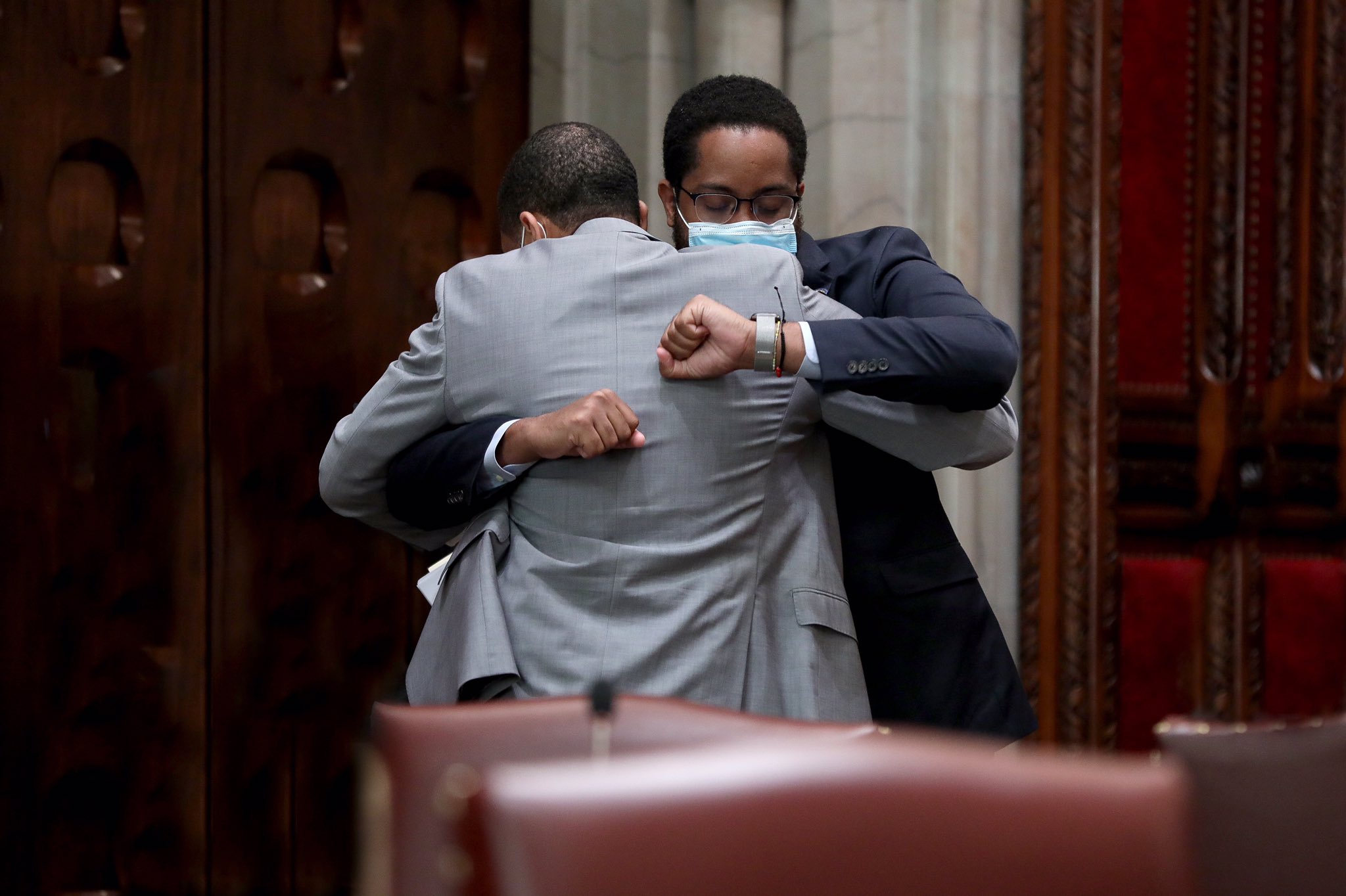
Despite a pandemic-induced shutdown of state legislatures across the country, the Innocence Project, together with other innocence network organizations and key partners, spearheaded major legislative changes that will benefit millions of people in 21 states. Propelled by a groundswell of public support for laws that ensure accountability and redress for law enforcement misconduct, these laws prevent police and prosecutorial practices that disproportionately hurt communities of color and the poor.
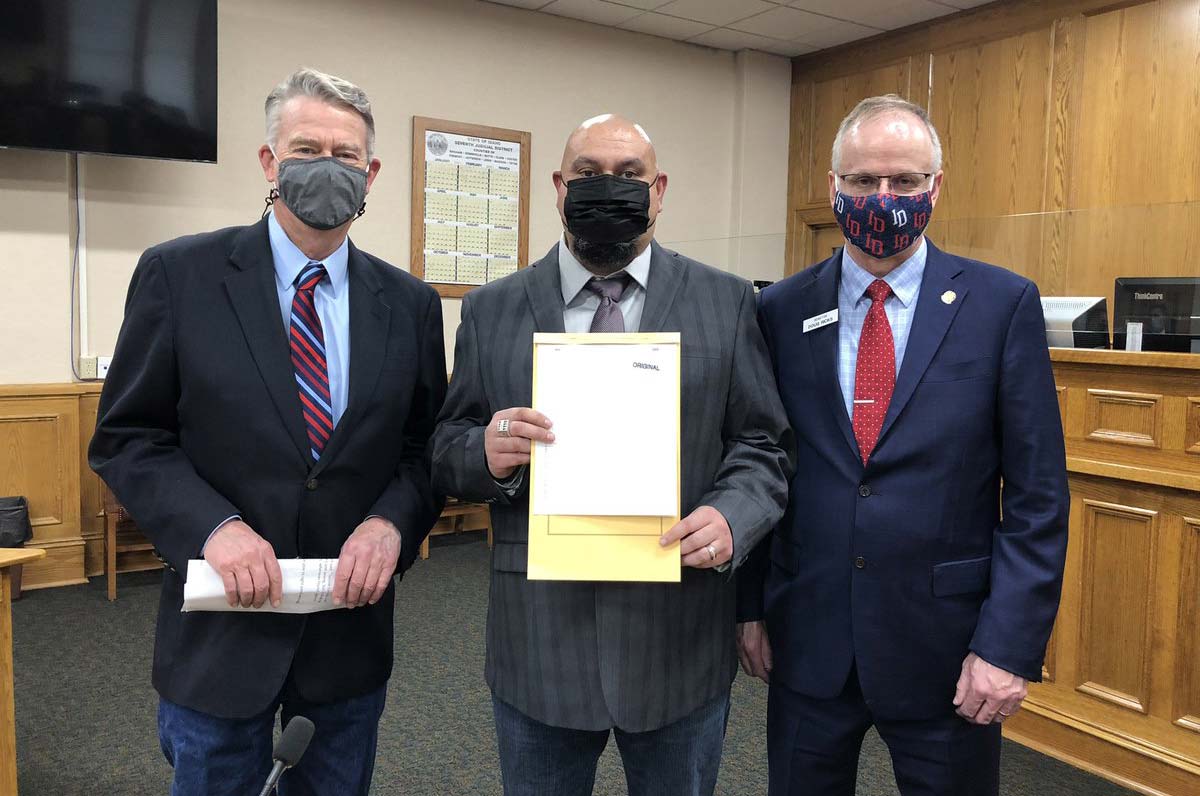
Idaho Gov. Brad Little, with exoneree Christopher Tapp and Sen. Doug Ricks, after signing SB 1027 — a wrongful conviction compensation bill — into law. (Image: Courtesy of the Office of Idaho Gov. Brad Little)
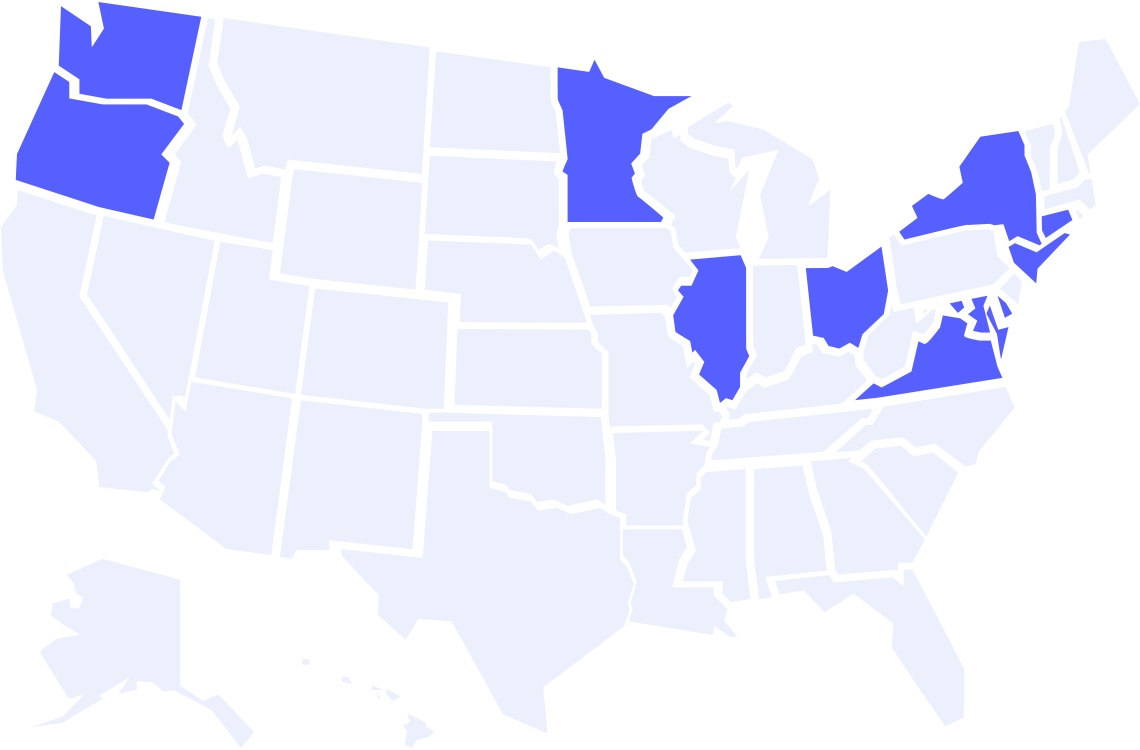
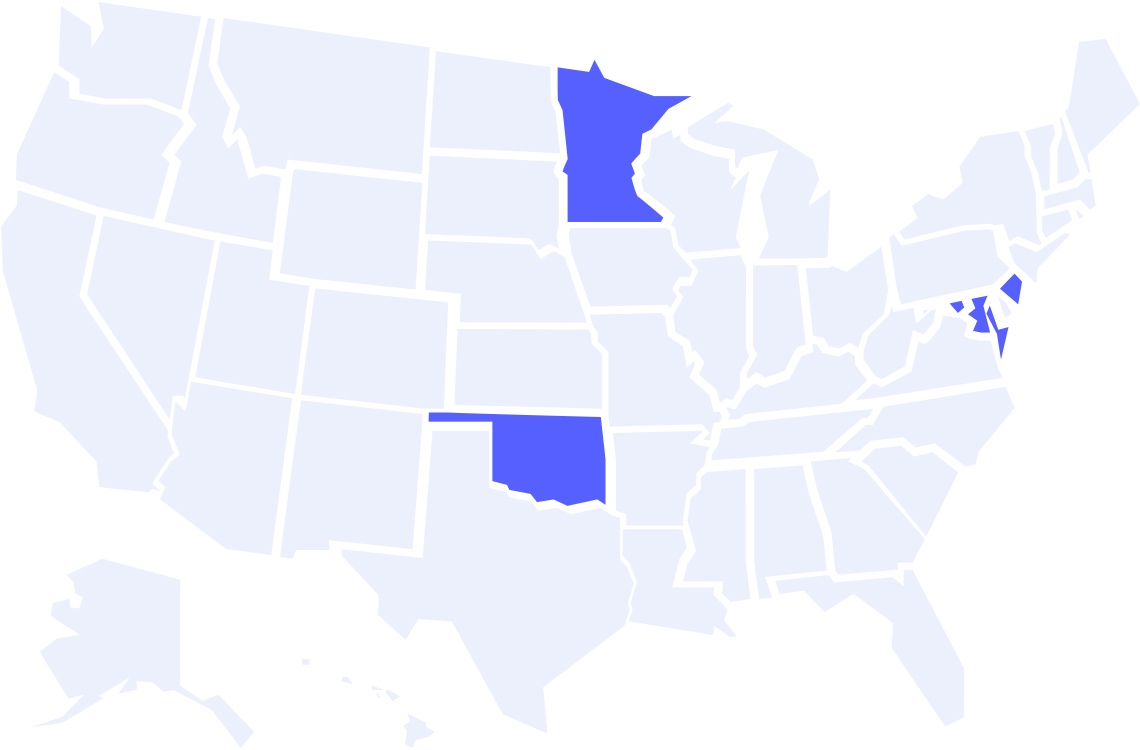

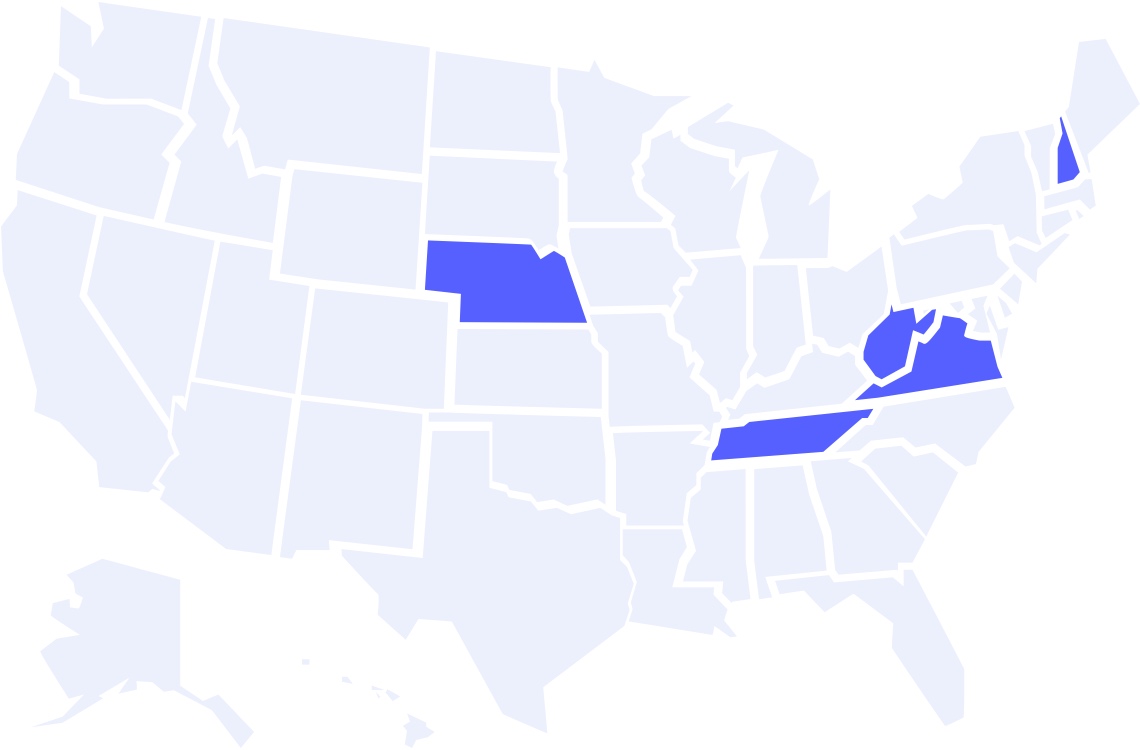




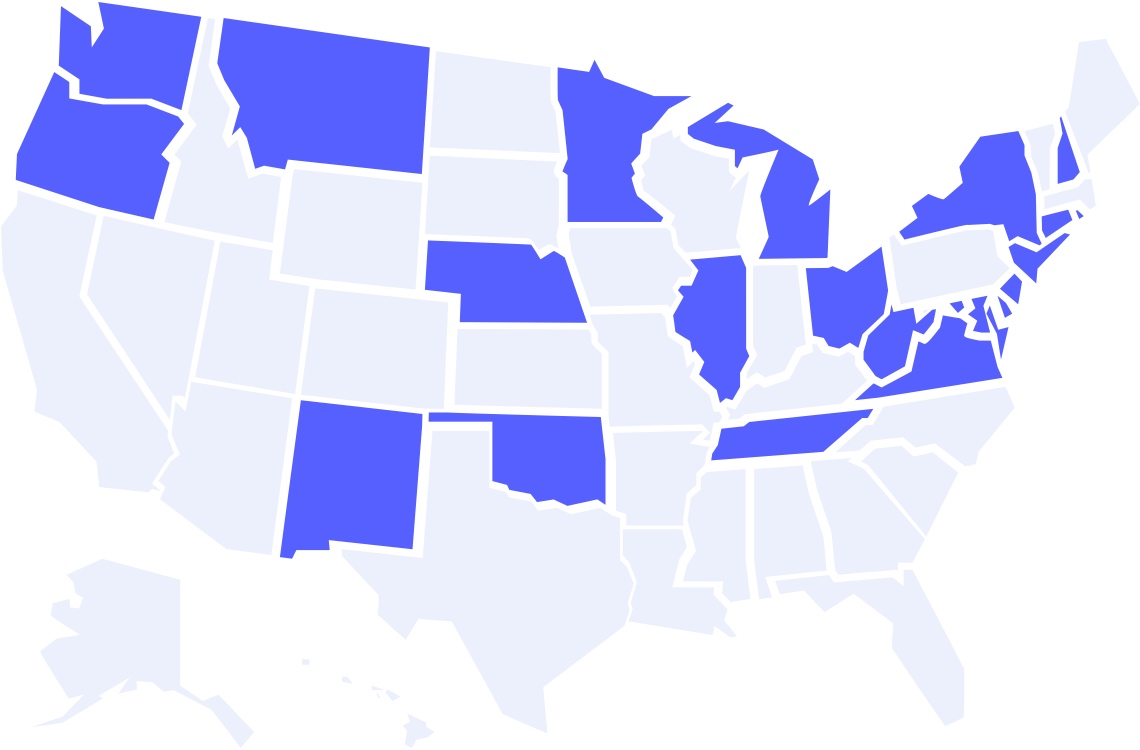
Tap reforms on the side to see in which states they occurred.
Tap reforms listed to see in which states they occurred.
32 reforms in 21 states
- Revised police practices and strengthened police accountability
- Implemented regulations on jailhouse informants
- Improved discovery framework
- Made process of proving innocence more accessible
- Strengthened or created compensation
- Strengthened forensics
- Abolished the death penalty
- Abolished qualified immunity

Huwe Burton, who wrongfully spent 19 years in prison after being coerced into a false confession at the age of 16, testified in support of SB 418, which prohibits Oregon law enforcement officers from using deception while interrogating people under the age of 18. (Image: Sameer Abdel-Khalek/Innocence Project)
Reforms to address false confessions
The Innocence Project helped establish laws to prevent false confessions, including requiring law enforcement to record interrogations and banning the use of deception during police questioning of juveniles. The passage of these reforms in Illinois and Oregon would not have been possible without people like Center on Wrongful Convictions of Youth client Terrill Swift and Innocence Project client Huwe Burton, who successfully advocated for a ban on police deception in those states respectively.
It’s time to restore real safety and real justice to our communities and end practices that perpetuate trauma and put the wrong people in prison.
Illinois Sen. Robert Peters co-sponsored and helped pass the Illinois bill, the first of its kind in the U.S. (Image: Courtesy of Sen. Peters’ office)
Fighting for Financial Justice
In March 2021, Idaho passed a law providing compensation for the wrongfully convicted — it was just one of many such laws for which the Innocence Project advocated that will help exonerees to rebuild their lives. The Idaho bill was rooted in the work of the Innocence Project, Idaho Innocence Project, exoneree Charles Fain, and exoneree Christopher Tapp (Mr. Tapp was represented by the Innocence Project, the Idaho Innocence Project, and local counsel John Thomas during his effort to overturn his wrongful conviction).
32
policy wins in 2020 and 2021
50
states that now allow experts to testify about eyewitness identification (Nebraska was the last to do so)
9
police practice reforms in 2020 and 2021
Protecting Against Unreliable Jailhouse Informant Testimony
James Kluppelberg spent 25 years in prison for a murder he did not commit as a result of unreliable jailhouse informant testimony. He, along with the Innocence Project and the Illinois Innocence Project, championed a 2019 Illinois bill that requires judges to look into the accuracy of any jailhouse informant testimony before trial.
Ensuring Accountability
In holding law enforcement and prosecutors accountable, the Innocence Project proudly joined a bipartisan coalition of organizations to back the New Mexico Civil Rights Act, a law that bans qualified immunity.
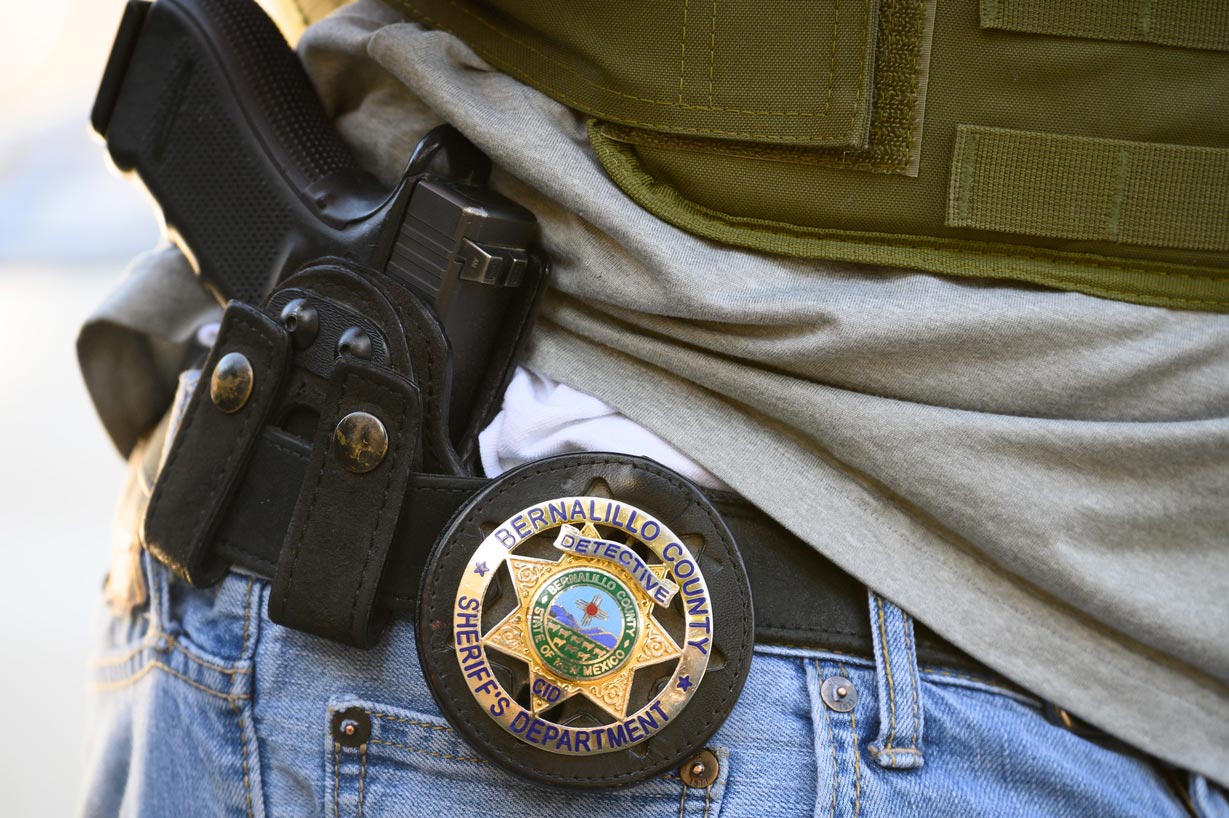
In April 2021, New Mexico Gov. Michelle Lujan Grisham signed the New Mexico Civil Rights Act, which effectively bans qualified immunity across the entire state — including in its most populous county Bernalillo County. (Image: Shane McCoy/U.S. Marshals/Flickr)
The new law puts a price tag on police misconduct and creates a strong incentive for agencies to adopt and enforce policies that prevent abuses which can lead to wrongful convictions.
(Image: Shane McCoy/U.S. Marshals/Flickr)
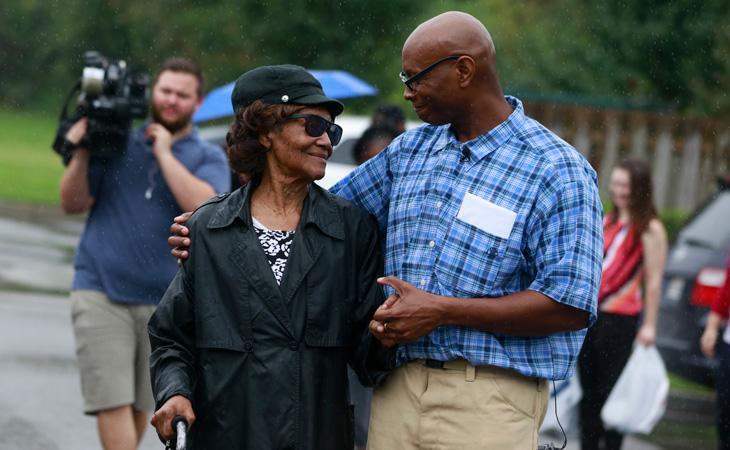
In April 2020, Virginia Gov. Ralph Northam signed legislation to strengthen the state’s writ of actual innocence law, which will help people like Darnell Phillips — who was represented by the Innocence Project at the University of Virginia School of Law and is pictured here with his mother after his release in 2018. (Image: Keith Cephus Photography/Innocence Project at the University of Virginia School of Law)
Proving Innocence
In the last two years, the Innocence Project helped remove barriers to revealing evidence of innocence and proving innocence in the courtroom. Organization-led reforms included increasing access to post-conviction DNA testing in New Hampshire and removing obstacles for those in Virginia who are trying to prove their innocence through non-DNA evidence.











